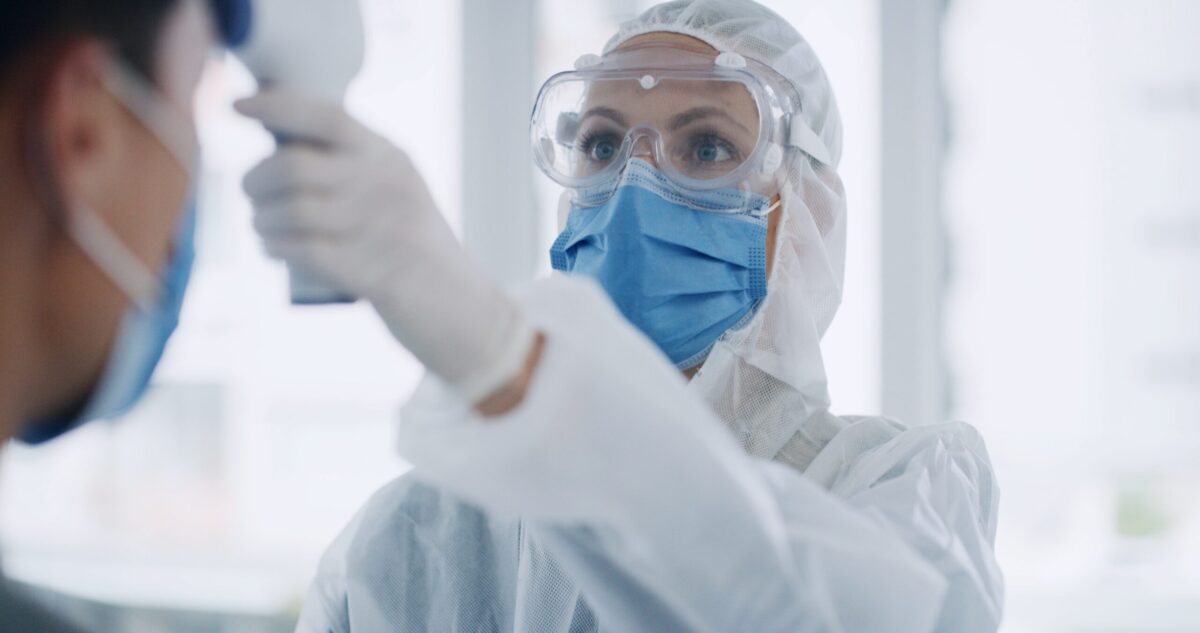CDKL5 deficiency disorder (CDD) is a rare genetic condition caused by mutations in the CDKL5 gene, which is essential for brain development and function. This disorder leads to severe neurodevelopmental impairment and early-onset, difficult-to-control seizures.

Medical Director
Marinus Pharmaceuticals
Affecting approximately one in 40,000 to 60,000 live births worldwide, primarily females, CDD presents significant challenges for both patients and healthcare providers. With no cure currently available, managing symptoms and improving the quality of life for patients remain critical goals for medical research and treatment.
At the forefront of addressing these challenges is Marinus Pharmaceuticals, Inc., a company dedicated to developing innovative treatments for seizure disorders.
With a strong focus on rare epilepsies like CDD, Marinus Pharmaceuticals is committed to meeting unmet medical needs through scientific innovation and patient-centered care.
In a recent interview with Xtalks, Dr. John Flatt, Medical Director of Marinus Pharmaceuticals, provided insights into the company’s mission, its initiatives and the hurdles and opportunities in treating seizure disorders.
XTALKS CLINICAL EDGE: Issue 3 — Interview with Marinus Pharmaceuticals’ Dr. Flatt
Xtalks Clinical Edge is a magazine for clinical research professionals and all who want to be informed about the latest trends and happenings in clinical trials. This magazine immerses you in a world where industry leaders, patient advocates and top researchers converge to provide the most insightful perspectives on clinical trials.
Focusing on High Unmet Needs
Marinus Pharmaceuticals is committed to tackling high unmet medical needs through scientific innovation, particularly in the realm of neurological disorders and rare epilepsies. These conditions profoundly impact patients and their families, significantly impairing quality of life and causing severe psychological and physical strain.
Dr. Flatt explained that Marinus’ journey began with the discovery of ganaxolone, a positive allosteric modulator of both synaptic and extrasynaptic GABAA receptors. This compound showed promise in preclinical seizure models exhibiting broad-spectrum antiseizure activity..
A pivotal moment for Marinus was identifying CDD as a target for ganaxolone. CDD begins in infancy, leading to severe developmental delays, motor dysfunction and intractable epilepsy. Traditional anti-seizure medications often fail in CDD, highlighting the urgent need for new treatments.
“We are proud to have executed the first-ever placebo-controlled trial in CDKL5 deficiency disorder that demonstrated ganaxolone’s effectiveness in treating the seizure types prevalent in this condition,” Dr. Flatt shared. The successful Marigold study led to ganaxolone’s approval for treating seizures in patients with CDKL5 deficiency disorder aged two and older, offering new hope for affected families.
Ganaxolone’s mechanism of action is thought to enhance the inhibitory effects of GABA, helping to stabilize neuronal activity and reduce seizures. This mechanism suggests ganaxolone could be effective for various epilepsy types, including those resistant to conventional treatments.
Marinus continues to evaluate other rare epilepsies and seizure disorders where ganaxolone might provide therapeutic benefits. By focusing on conditions with limited treatment options, Marinus aims to improve the lives of patients with few alternatives.
Raising Awareness During CDKL5 Awareness Month
June is CDKL5 Awareness Month, and Marinus is deeply committed to raising awareness and supporting the CDKL5 community.
“We work with advocacy organizations like the International Foundation for CDKL5 Research and the CDKL5 Alliance throughout the year,” Dr. Flatt noted.
In June this year, Marinus was the presenting sponsor of the International Foundation for CDKL5 Research’s family conference in Cleveland, an event that brings together patients, families and healthcare providers to share knowledge and support.
Internally, Marinus runs awareness campaigns to keep the focus on CDD. “We are doing an internal step challenge to raise awareness and keep that high focus on patients with CDD,” Dr. Flatt said. These efforts highlight Marinus’ ongoing commitment to the CDKL5 community, emphasizing the importance of continuous support and education.
Collaborations and Partnerships
Collaboration is at the heart of Marinus’ mission. The company works closely with patients, caregivers, healthcare providers and advocacy groups to ensure its therapies address real-world needs. “We engage with families to understand their challenges and the outcomes they want to see,” Dr. Flatt explained. This feedback is crucial in shaping clinical trials and ensuring new therapies fit seamlessly into existing treatment regimens.
One notable collaboration is with the Loulou Foundation, focusing on data collection and natural history studies for CDD. By collaborating with organizations and leveraging patient insights, Marinus aims to develop treatments that genuinely improve patients’ lives.
Addressing Challenges in Rare Seizure Disorder Therapy Development
Developing therapies for rare and severe seizure disorders comes with unique challenges. Dr. Flatt highlighted the difficulty in recruiting patients for clinical trials and the lack of comprehensive data on these rare conditions. To overcome these hurdles, Marinus works closely with patient advocacy organizations to raise awareness and identify potential trial participants.
“Understanding the natural history of these disorders is essential,” Dr. Flatt emphasized. Detailed data on how these conditions progress can help inform design of clinical trials. This approach ensures that the company’s treatments are not only effective but also tailored to the specific needs of rare disorder patients.
Incorporating Patient and Caregiver Feedback
Marinus Pharmaceuticals places a high value on patient and caregiver feedback, integrating it into every stage of drug development to ensure their treatments are both scientifically sound and practically beneficial.
Dr. Flatt emphasized the importance of understanding patient needs from the start. “We discussed with providers and families whether a capsule, tablet or liquid formulation would be most beneficial,” he said. This ensures that the medication is accessible for different patient groups, from young children to adults.
Marinus actively involves patients and caregivers in ongoing feedback loops during clinical trials. Regular surveys and interviews gather insights on the drug’s impact, side effects and overall satisfaction.
Insights from healthcare providers can offer valuable information into how the medication fits into existing treatment regimens in clinical practice.
This patient-centric approach exemplifies Marinus’ commitment to developing treatments that truly meet the needs of those they serve.
Expanding the Treatment Landscape
Looking ahead, Marinus aims to broaden its impact on the rare epilepsy market. The company is currently conducting a trial for ganaxolone in patients with tuberous sclerosis complex (TSC), with results expected later this year. This condition, characterized by benign tumors that can cause epilepsy and other neurological issues, represents another critical area where Marinus believes their innovative treatment could make a significant difference.
“We are continually looking for other rare epilepsies where ganaxolone could make a difference,” Dr. Flatt stated. This commitment drives Marinus to explore a wide range of conditions where current treatment options are inadequate, ensuring their efforts are focused on areas of high unmet need.
Staying at the Forefront of Innovation
Innovation is at the heart of Marinus Pharmaceuticals’ strategy. By constantly pushing the boundaries of what is possible, Marinus aims to deliver more effective and versatile treatments for seizure disorders.
“We are driven to continually ask how we can improve and expand the impact of our therapies,” Dr. Flatt affirmed. This pursuit of improvement leads Marinus to investigate various aspects of ganaxolone’s potential. They are exploring a prodrug formulation of ganaxolone to potentially enhance the patient experience and treatment effectiveness by aiming to improve the drug’s bioavailability.
Marinus’ commitment to innovation is evident in its continuous efforts to refine and expand its therapeutic offerings. By leveraging scientific advancements and maintaining a patient-focused perspective, Marinus strives to remain a leader in the epilepsy and seizure disorder space, ultimately improving the lives of those affected by these challenging conditions.













Join or login to leave a comment
JOIN LOGIN